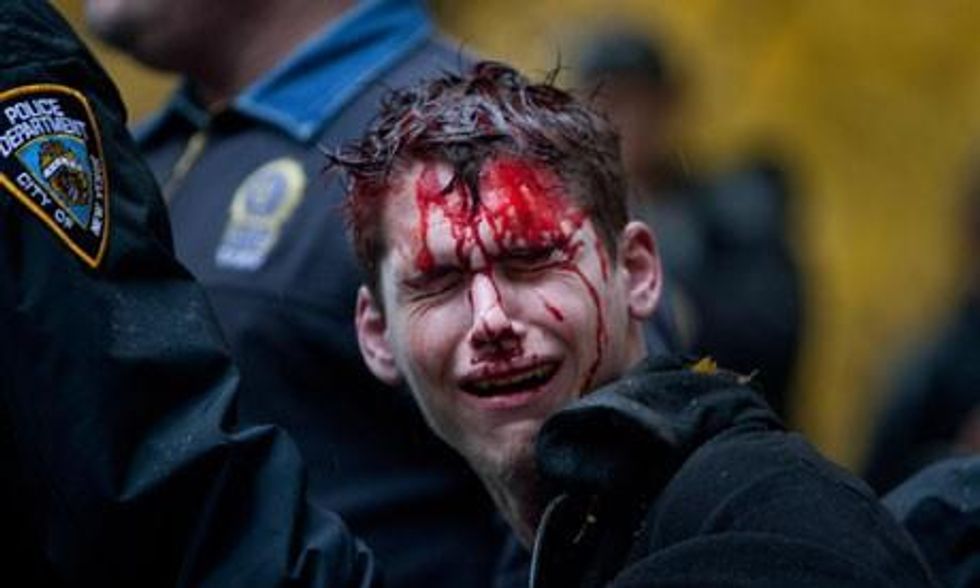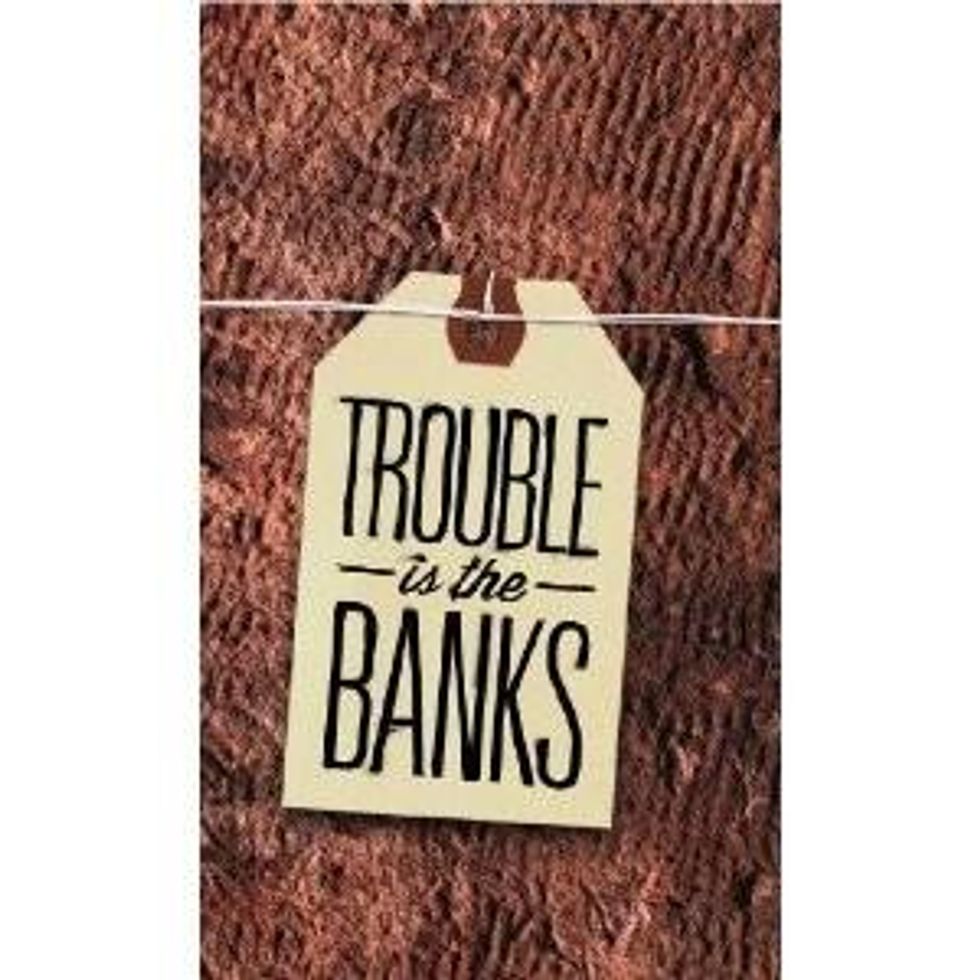A year ago today, a few hundred people went to Wall Street, gathering in the financial district in Lower Manhattan with the intention of staying there until the US noticed. I was lucky to be in Zuccotti Park that first day, with the much more courageous and steadfast Occupiers, who slept out, and planned often truly profound visions for social change.
I was just there as a citizen, a baffled ordinary person. I thought that what President Bush had done, what Obama had done, to deal with the financial crisis since 2007-2008 - the Dodd-Frank regulations, the Financial Inquiry Commission, civil actions and settlements - had ended as a wink-wink, nod-nod to global financial behemoths. I felt disbelief in seeing that, in the press at least, matters were closed. So I stood outside, and looked for what I could do. But like many others of the rank and file, the non-visionaries, I went home at night. I slept in a warm bed. I worried what America and the world would make of us.
Then a kind of miracle occurred. Occupy camps sprang up in every major US city, plus little demonstrations and pickets in every tiny town. Polls showed widespread support, and the press and TV were unexpectedly interested and kind at first, considering how easy we were to make fun of.
Once you talked to newcomers at marches and rallies, however, it seemed less surprising. Ordinary Americans were truly strangled by debt - suffering in immediate ways that rarely made the news - while we knew that bankrupt institutions had been propped up, with money from our taxes, only to go on foreclosing on soured mortgages and compounding our credit card service fees. Even the business reporters who visited Occupy knew the system was rickety and wildly unfair. The only people who didn't experience it personally, alas, were the wealthy, who controlled national political decisions.
Here is a letter from a small town resident in Illinois to a Wall Street executive: "Our neighbours, with teenagers our children grew up with, are about to be evicted from their house. Their car was repossessed. Their father works in construction, and there hasn't been much of that going on since the real-estate market crashed, which you may remember. Whose fault was that - his? ... People in your world are doing great (from what we hear, 'great' doesn't begin to describe it), while the rest of us are going down. It is a disaster and cannot continue."
Within six weeks of the start, many of us began to get nervous that the economic points were getting lost. The direct and obvious message in the protests was increasingly submerged beneath two distractions. One was the endless police violence against the protesters, and the other an obsession with how so many people could live so close together without showers and toilets.
You could feel the change occurring: the press started to think the camps were gross. And you could tell that the police were distancing themselves from us, deciding that we were "them", not citizens. When, on 26 October 2011, Oakland police shot a protester, Scott Olsen, in the head with a tear-gas canister or some other unconventional round, I despaired. Olsen had survived two tours as a marine in Iraq, only to have his skull shattered for exercising freedom of assembly at home. That's it, I thought, that's how non-violent protest ends. You can always pre-empt protest in democracies with sufficient brutality, carefully and stealthily applied, under the guise of crowd control or health and sanitation.
That night, in the endless click-trance that bad news induces on the internet, I was passing through sites from different cities' occupations when I landed on an effort called Occupy the Boardroom. This website asked for letters from people who could never go to an Occupy encampment. It collected detailed, forceful messages composed by ordinary citizens directly to named executives of the big six US banks. Its promise was to deliver them, by email, while posting them to "the mailbag" so we could all read one another's words.
"The housing crash of 2008 was not an unfortunate accident, rather the fallout from careless gambling and calculated, short-term greed ... I don't expect you to do anything about it. I'd rather you just got out of the way so the rest of the country can start rebuilding. Take your business to Greece or Ireland. Oh wait, you already bankrupted them. I guess the US was just the next target."
"Just wanted to give you a pat on the back for collecting over $4,000 from a friend of mine on a Chase credit card with a $500 limit (on which she charged a little bit less than $500 worth of merchandise). It was a great example of innovation in your industry!"
The authors might be struggling to make a living, working at two jobs to save their home, or taking care of an ill or elderly relative. But they supported the protests, and intelligently explained like no source I had ever seen what Americans have experienced at the hands of our banks, and the reasons to speak out.
For the 10 months since the eviction of Zuccotti Park, these letters have given me direction through all the vicissitudes of Occupy. I met the website organisers and asked to use the only skills I have, as a writer and editor, to gather the best ones into a book. A group of volunteers and co-editors read all 8,000 letters. We selected 150. We contacted every author we could find for permission, and have published the letters as The Trouble is the Banks: Letters to Wall Street. I'm hoping to mail the book to Mitt Romney - and the president too, of course.
People ask me if Occupy will continue, or succeed in anything, if it will change anyone's mind in power. I really have no idea what to answer. For my part, these letters, bound in print, mean that no one can any longer say that they didn't learn what had gone wrong in America, what Occupy arose from, or whether the citizenry supported it; or that they didn't know what solutions citizens clearly wanted, or the profound reasons for our discontent.



